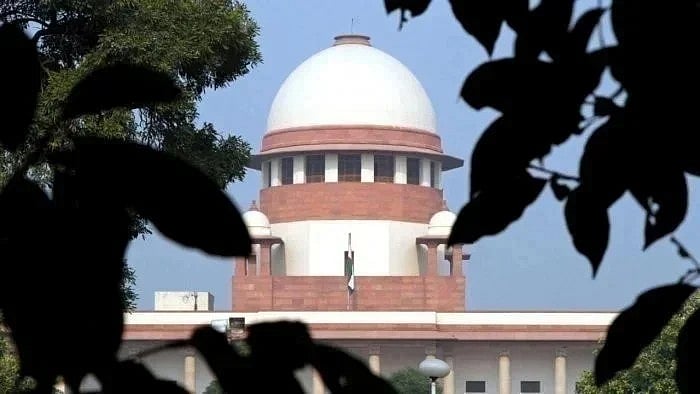
The Supreme Court of India.
Credit: PTI File Photo
New Delhi: The Supreme Court has refused to grant custody of minor girl children to their mother after finding that they were in safe custody of their paternal grandmother.
A bench of Justices B V Nagarathna and R Mahadevan disposed of a habeas corpus petition filed by Vaishali while granting her liberty to go and live with the daughters aged seven and three and half years.
The daughters were virtually produced before the court from Bareilly where they were currently living their grandmother.
The woman, represented by advocate Dushyant Parashar, sought custody of the daughters but the bench pointed out this was not her plea in the instant petition.
During the proceedings, the court noted, the petitioner who is present has also interacted with the minor children. The petitioner is also willing to stay along with the minor children and her in-laws at Bareilly.
The counsel for respondents also submitted that there would be no impediment for the petitioner to reside along with the children.
"In the circumstances, we are satisfied about the security and safety of the children in respect of whom the writ of Habeas Corpus has been sought by the petitioner-mother of the children herein," the bench said.
Therefore, the court disposed of the writ petition on October 14, reserving liberty to the petitioner to reside with the children and her in-laws at Bareilly.
The counsel for the woman sought protection for her in view of her past incident of having been allegedly beaten up black and blue by her husband.
The court, however, declined such a request, noting that it was not her plea in the petition.
The woman has approached the court by filing a habeas corpus petition, for custody of her minor daughters, claiming that they have been illegally and forcibly detained and confined to their paternal grandparents home, depriving her, the natural guardian, all access and contacts.
In her plea, the woman alleged she has been deliberately deprived of the custody of her children solely to shield the husband and his family from lawful maintenance, and to protect them from legal consequences under domestic violence and dowry laws.
"This strategy of isolation and forced separation was employed to break the petitioner emotionally, financially, and legally. The children have been kept isolation, deprived of education, medical care, and maternal love. The elder daughter has not been enrolled, amounting, to a gross violation of Article 21-A of the Constitution," the plea said.
Her plea further said, the petitioner is a cancer patient undergoing treatment, financially distressed, and has exhausted all alternative remedies. She has been declared mentally unstable by the respondents without any medical basis, leading to public defamation and further denial of legal aid.
The petitioner's plea is not only for recovery of her minor daughters but also for the enforcement of their fundamental rights under Articles 14, 15, 21, 21-A, and 39(e) of the Constitution, it said.
